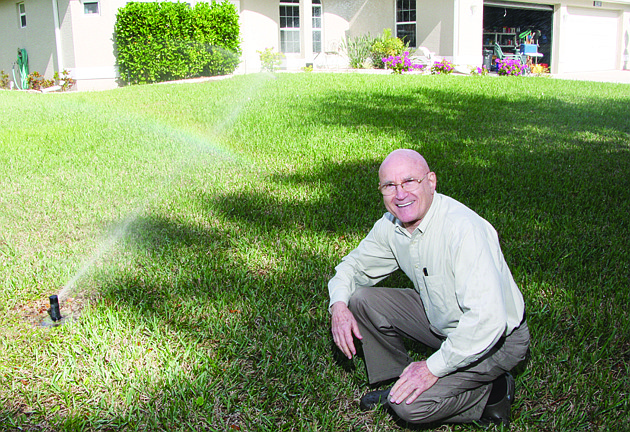- November 25, 2024
-
-
Loading

Loading

How hard is it to cut government waste? Just ask Jack Tanner.
The Lee County resident and a band of like-minded folks accomplished what few have: They dissolved a wasteful government agency and returned the money to taxpayers.
But it took six years.
On Sept. 27, Secretary of Agriculture Adam Putnam signed an order dissolving the Lee Soil and Water Conservation District, an agency whose sole mission was to inspect residential sprinkler systems.
Tanner and others elected to the board returned $100,000 to taxpayers over six years. “I didn't think it would take that long,” says Tanner. “The thing that was the hardest was finding the most economical way to give the money back to taxpayers.”
As Tanner's experience shows, citizens can cut government waste. But in reality those who promise to make cuts on the campaign trail often don't follow through “A lot of elected people are there to get reelected. What are they using that power for?” Tanner wonders. “They stand up and say they want to reduce spending, but their record doesn't bear it out.”
Tanner, 80, a former auto-parts business owner, has been active in local politics since he sold his Fort Myers business in 1995. In 2004, he was elected to the Lee Soil and Water Conservation District after learning that it was wasting money on a mobile-irrigation lab operated by a technician who was earning $50,000 a year by inspecting one sprinkler every other day. Besides, there were plenty of companies offering to do the same for free.
Lee's conservation district and others like it were formed as conduits for federal and state money to farmers, but their missions morphed over time. Lee's district was formed in 1947.
By 2007, enough people had been elected to the district board who thought like Tanner that they were able to fire the small staff and start returning the $100,000 to taxpayers.
When Tanner offered to return $10 to every property owner who requested a check, he was flooded with 15,000 requests. Tanner handled the task himself at first by hand, tediously verifying the requests were from legitimate property owners in Lee County. In 2010, the board hired someone to help him speed the process.
Once the money had been disbursed, board chairman Terry Miller requested that the Putnam dissolve the district. Without money in the bank, local politicians had no incentive to keep it going.
Tanner says the experience is a good lesson in civic involvement. “Most people think it can't be done,” says Tanner. “If more news media would publicize it on a continuing basis, it would inspire people to do it.”
At age 80, Tanner says he's not keen on taking on another agency. However, he says Lee County's 17 fire districts should be scrutinized for how they spend their money. “The public doesn't seem to be their first priority,” says Tanner. “The problem is that the people who are elected there don't do the job. The fire commissioners have power to set policies and the employee unions are the ones who are dictating what's going on.”